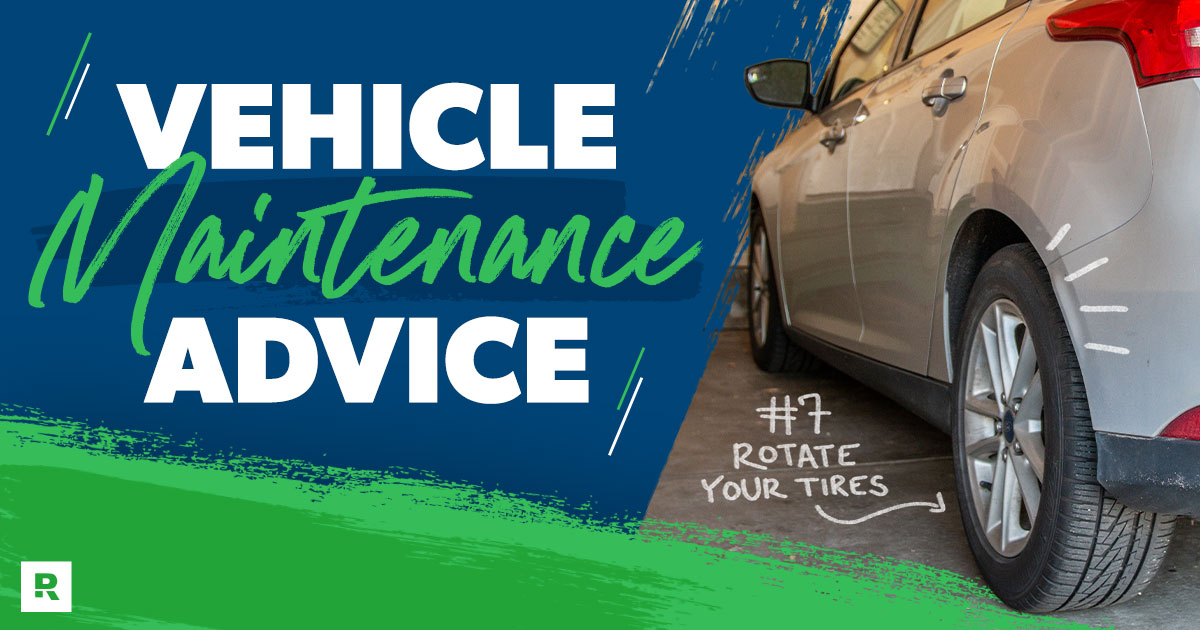Car maintenance is essential for keeping your vehicle in optimal condition and preventing costly repairs. Regular maintenance tasks like oil changes, tire rotations, and brake inspections increase the longevity and performance of your car.
Proper maintenance also enhances safety on the road. Neglecting car maintenance can lead to breakdowns, reduced fuel efficiency, and potential accidents. So, it’s crucial to establish a routine maintenance schedule with a trusted mechanic to ensure the smooth running of your vehicle and extend its lifespan.
By taking proactive steps to maintain your car, you can save both time and money in the long run.

Credit: www.ramseysolutions.com
Importance Of Regular Maintenance
Regular car maintenance is crucial to enhance performance and extend your vehicle’s lifespan. Neglecting maintenance can lead to expensive repairs down the line, affecting your budget. By adhering to a regular maintenance schedule, you can prevent potential problems from escalating.
This includes timely oil changes, inspecting and replacing worn-out parts, checking tire pressure, and ensuring fluid levels are optimal. Taking care of these aspects not only ensures your car’s smooth operation but also enhances fuel efficiency, saving you money in the long run.
Moreover, regular maintenance improves safety by identifying potential issues before they become hazardous. Overall, investing in routine car maintenance is a proactive measure that benefits both your wallet and your peace of mind. So, don’t overlook the importance of maintaining your car properly.
Checking Fluid Levels
Regularly checking the oil levels in your car is crucial for its maintenance. It is recommended to check the oil levels once a month to ensure optimal performance and prevent engine damage. Regular oil changes are equally important as they help keep the engine clean and lubricated, enhancing fuel efficiency and extending the lifespan of your car.
Coolant levels also require regular monitoring as maintaining proper levels prevents the engine from overheating and protects against corrosion. To check and add coolant, ensure the engine is cool, remove the cap, and fill the reservoir to the appropriate level.
Brake fluid plays a vital role in your car’s braking system. Low brake fluid levels can cause brake failure, so it’s important to know the signs of low fluid, such as a spongy brake pedal. To check brake fluid, locate the reservoir, remove the cap, and ensure it’s at the recommended level.
Top it up if necessary. Stay on top of these fluid levels to keep your car running smoothly and safely.
Tire Maintenance
Regularly checking tire pressure is important for the safety of your vehicle. It ensures that your tires are properly inflated. Maintaining recommended tire pressure levels is crucial for optimal performance and fuel efficiency. To measure and adjust tire pressure, use a tire pressure gauge and add or release air accordingly.
Tire rotation is necessary to promote even tread wear and prolong the life of your tires. Misaligned tires can cause uneven wear and affect your vehicle’s handling. Look for signs of misalignment, such as uneven tire wear or pulling to one side, and have it corrected promptly.
Adequate tire tread depth is essential for traction and handling on wet or slippery roads. To check tire tread depth, use the penny test or a tread depth gauge. Remember to prioritize tire maintenance to ensure your safety while on the road.
Regular Engine Maintenance
Regular engine maintenance is essential for the optimal performance of your car. One aspect of this is changing the air filter. A clean air filter has several benefits, including improved fuel efficiency and increased engine longevity. It’s recommended to replace the air filter every 12,000 to 15,000 miles or as per the manufacturer’s guidelines.
Another important part of engine maintenance is spark plug maintenance. Worn-out spark plugs can lead to problems such as poor fuel economy and rough idling. It’s recommended to replace spark plugs every 30,000 to 50,000 miles or as indicated by the manufacturer.
Additionally, taking care of your battery is crucial. Weak batteries can cause starting issues and electrical problems. Signs of a weak battery can include dim headlights and difficulty starting the car. To prolong battery life, it’s advisable to keep the terminals clean and ensure the battery is securely fastened.
Keeping The Exterior Clean
Regular washing and waxing of your car’s exterior yield numerous benefits. You not only maintain its appearance but also protect the paintwork from damage. It is recommended to wash and wax your vehicle bi-weekly or monthly, depending on the climate and road conditions.
Regular cleaning removes dirt, dust, and debris that can potentially harm the paint. Moreover, it helps to restore the shine and gloss of your car. In addition, you should also pay attention to removing stubborn contaminants like tree sap, bird droppings, and tar.
These can be effectively eliminated using specific products or techniques. By protecting your paintwork, you extend the lifespan of your car’s exterior, keeping it looking pristine for years to come. So, don’t underestimate the significance of car maintenance and keep your vehicle’s exterior clean at all times.
Importance Of A Properly Functioning Suspension System
A properly functioning suspension system is of utmost importance for your vehicle’s optimal performance. Several signs can indicate suspension problems such as uneven tire wear, excessive bouncing or swaying. To ensure the longevity of your suspension components, it is essential to regularly inspect shocks and struts.
Look out for any damage or leakage that may signal the need for a replacement. Additionally, a simple check for worn-out suspension parts can be done by pressing down on each corner of your vehicle and observing any unusual movements or creaking noises.
Proper maintenance of your suspension system will not only enhance your driving experience but also ensure your safety on the road. Stay vigilant and address suspension issues promptly to avoid further damage and costly repairs.
Brakes And Safety
Brake pad inspection is crucial for ensuring safety on the road. Look for signs indicating the need for replacement, such as squealing or grinding noises. Regular brake pad checks are recommended to maintain optimal performance. Don’t forget about brake system maintenance, including replacing brake fluid at the recommended interval.
Keeping the brake system in good condition will help prevent accidents and prolong the life of your car. To maintain optimal brake performance, follow these tips: avoid sudden braking, allow for ample stopping distance, and avoid carrying excessive weight in your vehicle.
Trustworthy mechanics can provide professional guidance and services for your car’s brake maintenance needs. Stay safe on the road by staying on top of your car’s brake maintenance.
Additional Tips For Car Maintenance
Regularly checking and replacing filters is an essential aspect of car maintenance. Inspecting belts and hoses for signs of wear and tear is also crucial to prevent unforeseen breakdowns. Keeping an eye on the check engine light can help identify and address potential issues early on.
Neglecting these tasks can lead to costly repairs and even pose a safety risk. By staying proactive and addressing maintenance needs promptly, you can extend the lifespan of your vehicle and ensure a smooth driving experience. Regular car maintenance not only improves performance but also helps reduce emissions, contributing to a cleaner environment.
Make it a habit to prioritize these additional tips to keep your car in optimal condition. Protect your investment and enjoy worry-free driving by giving your vehicle the care it deserves.
Frequently Asked Questions For Car Maintenance
How Often Should I Change My Car’S Oil?
It is recommended to change your car’s oil every 3,000 to 5,000 miles or every 3 months, whichever comes first. Regular oil changes help maintain engine performance and prolong its lifespan.
Do I Need To Rotate My Car’S Tires?
Yes, tire rotation is essential for even wear and prolonging tire life. It is recommended to rotate your car’s tires every 5,000 to 7,000 miles or as specified in your vehicle’s owner manual. This ensures balanced handling and extends tire tread life.
How Often Should I Replace My Car’S Air Filter?
A dirty air filter can impact engine performance and fuel efficiency. It is advisable to replace your car’s air filter every 12,000 to 15,000 miles or annually. However, if you drive in dusty or polluted areas, more frequent replacements may be needed.
Is It Necessary To Flush My Car’S Coolant?
Flushing your car’s coolant helps prevent overheating and corrosion. It is recommended to flush the coolant system every 30,000 to 50,000 miles or every 5 years, depending on the vehicle’s usage and manufacturer’s guidelines.
What Should I Do If My Car Battery Dies?
If your car battery dies, you can jump-start it using jumper cables and another vehicle with a charged battery. Alternatively, you can call a roadside assistance service for help. It is also important to have your battery checked regularly to prevent unexpected failures.
Conclusion
Maintaining your car is essential to ensure its longevity and optimal performance. Regular car maintenance not only prevents major breakdowns but also saves you money in the long run. By sticking to a routine maintenance schedule, you can identify potential issues early on and address them before they become costly repairs.
Simple tasks like checking the oil, inspecting the tires, and changing the filters can significantly improve your car’s fuel efficiency, safety, and overall reliability. Additionally, by following the manufacturer’s recommended maintenance schedule, you can maintain your car’s warranty and ensure that it operates at its best.
Remember, a well-maintained car not only gives you peace of mind while driving but also adds value when it’s time to sell or trade in. So, prioritize car maintenance and keep your vehicle running smoothly for years to come.

